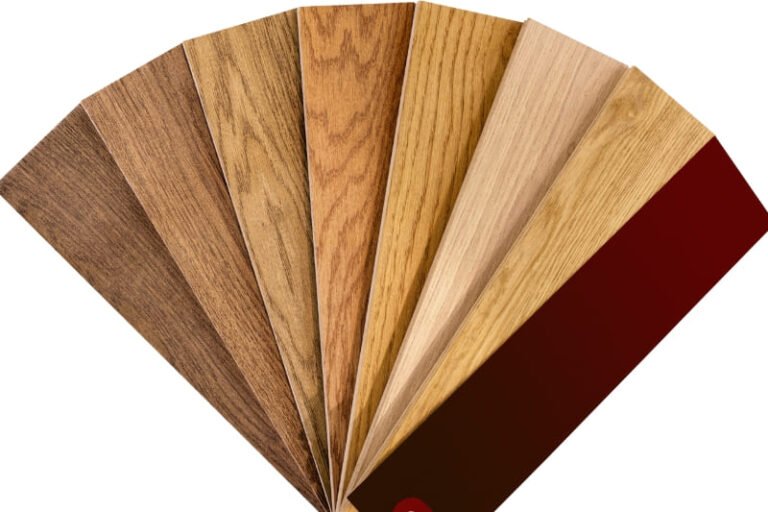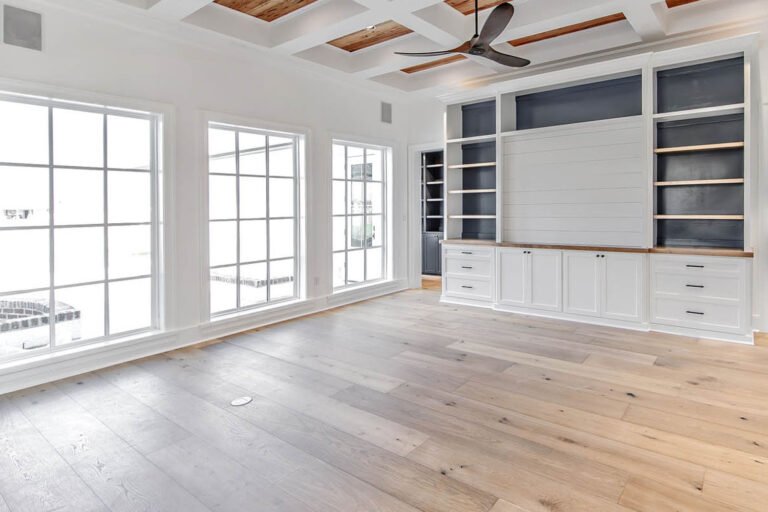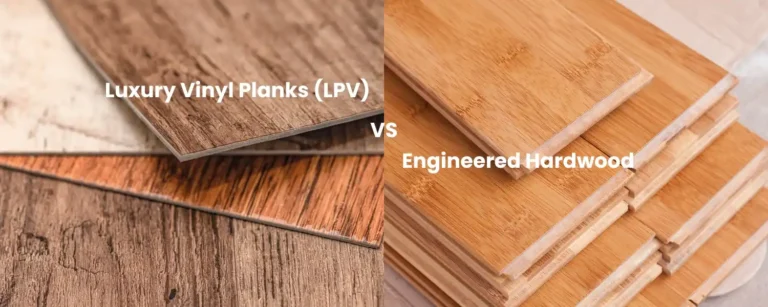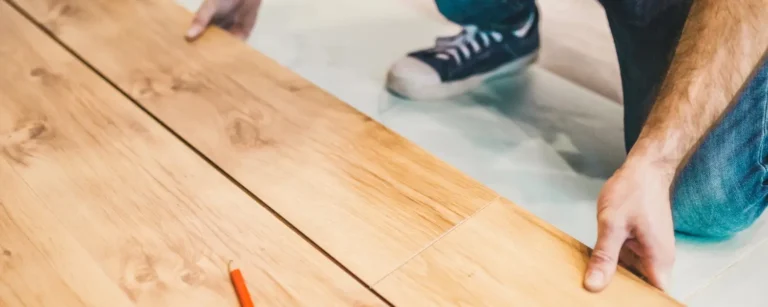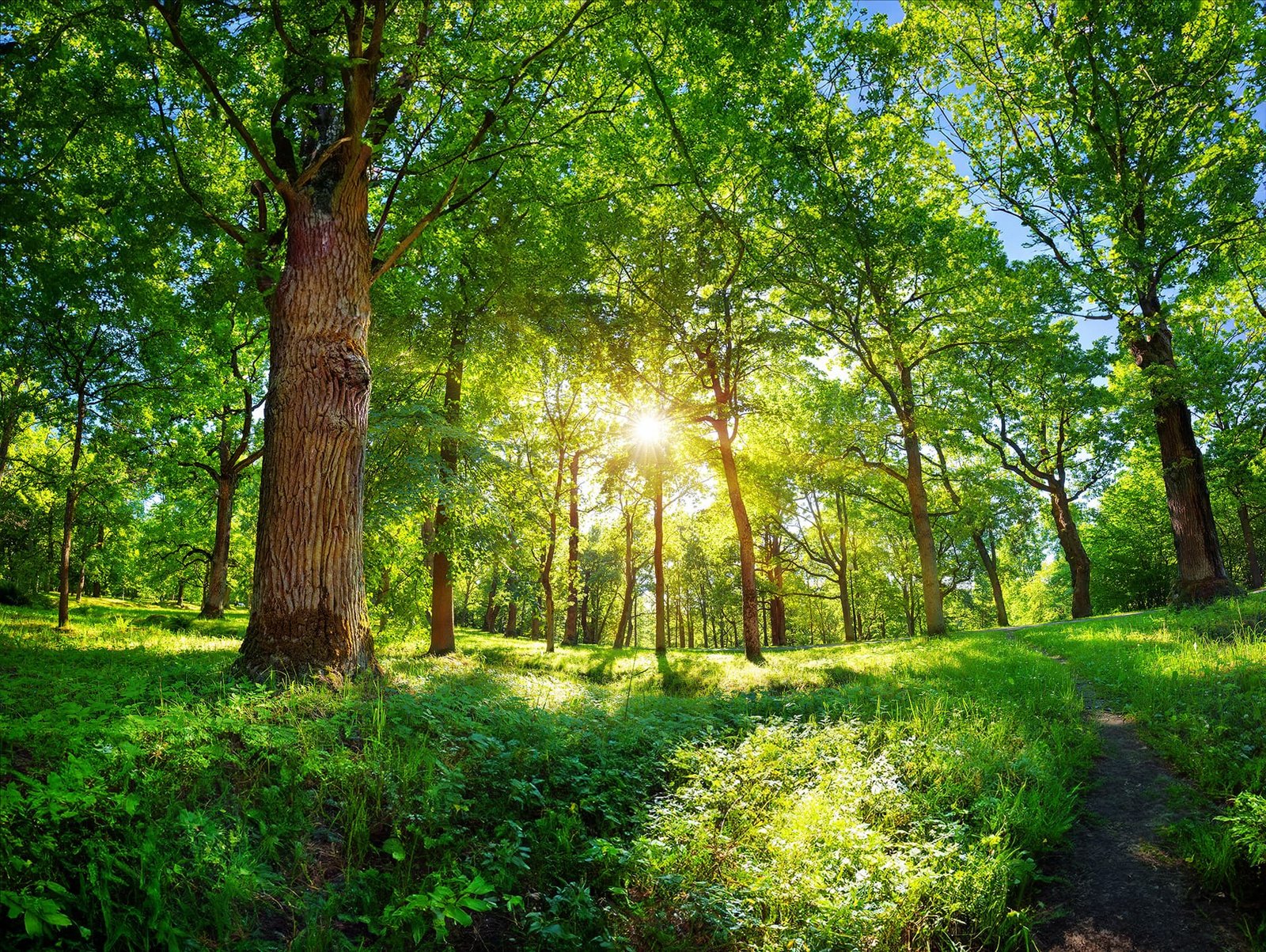Is Engineered Hardwood Waterproof?
“Is Engineered Hardwood Waterproof?” you might wonder if you’re considering new floors for your residential space. Engineered hardwood looks great, but can it withstand spills and splashes? This article will clarify any confusion by explaining how producers craft engineered hardwood and what makes it water-resistant. We’ll also share some maintenance tips for wood floor spots that accidentally get wet. By the end of this post, you’ll have a good understanding of engineered hardwood’s water-resistant properties and how to preserve the long-lasting beauty and health of your luxury wood floors.
Understanding Engineered Hardwood Flooring
What is Engineered Hardwood Flooring?
Engineered hardwood flooring is a durable and flexible alternative to solid hardwood. It consists of a thin veneer of real prefinished hardwood on top, with layers of plywood or high-density fiberboard (HDF) underneath.

Composition of Engineered Hardwood
Engineered hardwood comprises multiple layers bonded to create a stable, durable flooring material. The top layer, known as the wear layer, is made of real hardwood and forms the surface you walk on.
Beneath the wear layer, several core layers, typically made of plywood or HDF, are arranged in a cross-grain pattern, which enhances the flooring’s stability and strength. Additionally, the core layers help minimize the wood’s expansion and contraction due to changes in temperature and humidity.
The bottom layer provides extra support and stability, ensuring the flooring remains level and flat by counterbalancing the tensions created by the other layers.
Learn more about engineered hardwood flooring, “What is Engineered Hardwood Floor?“
Factors Affecting Engineered Hardwood’s Water Resistance
Engineered hardwood has many layers, including a top layer of real hardwood veneer and core layers of plywood or high-density fiberboard (HDF). These layers contribute to the flooring’s water resistance.
Material Quality
The water resistance of engineered hardwood depends on the quality of the materials. Choosing high-quality hardwood veneers and core layers made from moisture-resistant materials improves the flooring’s ability to withstand water.
Construction techniques
Construction techniques significantly impact the water resistance of engineered hardwood flooring. Advanced modern wood floor manufacturing methods like cross-grain bonding ensure strong layer adhesion, enhancing the flooring’s stability and durability.
Finishing and sealants
The finish applied to engineered hardwood serves as a protective barrier against moisture. High-quality finishes, such as aluminum oxide or polyurethane, offer excellent water resistance. Additionally, the installation involves applying sealants that create an extra layer of protection against moisture, further improving the flooring’s overall water resistance.
The Water Resistance of Engineered Hardwood
Is Engineered Hardwood Water Resistant?
Engineered hardwood flooring resists water to a certain extent, making it suitable for moisture-prone areas like kitchens. However, it’s important to note that engineered hardwood is only partially waterproof and requires proper maintenance to preserve its integrity over time.

Understanding the Difference Between Waterproof and Water-resistant
Understanding the distinction between waterproof and water-resistant is important when seeking durable hardwood for residential upgrades. Waterproof flooring can withstand prolonged exposure without damage. In contrast, water-resistant flooring, like engineered hardwood, can resist moisture to some extent but may get damaged if exposed to excessive water.
The Truth About Waterproof Wood Flooring
Waterproof wood flooring may be the perfect solution for areas with moisture, but there are some drawbacks to consider. Despite its ability to withstand water exposure, it can be expensive to purchase and install. Installation may also be more complex, requiring specialized tools and expertise.
Moreover, the limited styles and finishes can restrict design options, making it challenging to achieve the desired architectural and/or interior design aesthetic. Furthermore, while it resists water damage, it is still susceptible to scratches, dents or fading.
Maintaining Engineered Hardwood in Moist Environments
Preventive Measures
Here are some steps to help maintain the quality of engineered hardwood flooring in moist areas:
- Control Humidity Levels: Use a dehumidifier to optimize humidity levels, usually between 35% and 55%, to prevent excessive moisture absorption by the flooring.
- Install Proper Vapor Barriers: Before installing engineered hardwood, lay down moisture barriers, such as vapor barriers or underlayment. These prevent moisture from seeping through the subfloor.
- Use Area Rugs or Mats: Place rugs or mats in pet-friendly rooms and other high-traffic areas near sinks and entryways. They catch water and prevent it from reaching the flooring.
- Clean Spills Promptly: Immediately wipe up spills and moisture using a dry or slightly damp cloth. It prevents water from seeping into the flooring and causing damage.
Maintenance Tips for Water Resistance
Regular maintenance is essential to keep engineered hardwood flooring in great condition:
- Regular Cleaning: Sweep or vacuum the floor regularly to remove dirt, debris and dust that can scratch the surface and compromise the finish.
- Gentle Mopping: Use a damp mop or microfiber cloth lightly dampened with water or a manufacturer-approved hardwood floor cleaner. Avoid excessive water, as it can seep into the seams and joints and damage the flooring.
- Avoid Harsh Chemicals: Avoid harsh cleaning products, wax-based cleaners or steam cleaners, as they can strip away the protective finish and damage the wood.
- Reapply Finish as Needed: Monitor the finish’s condition and reapply to maintain the flooring’s water resistance. Signs that you may need to reapply the finish include dullness, scratches or water spots on the surface.
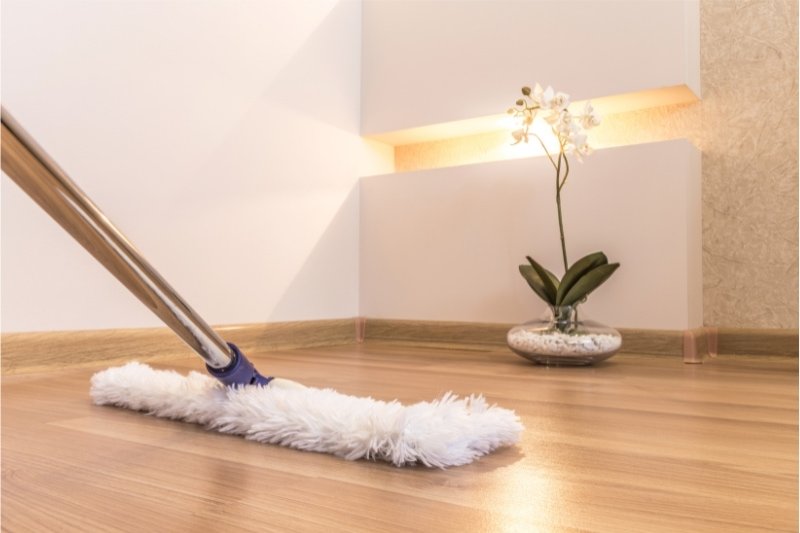
Learn more about the process of cleaning Engineered Hardwood Floors in our comprehensive blog, “How to clean engineered hardwood floors?“
Making the Right Choice: Is Engineered Hardwood Right for You?
Considering Your Home’s Needs
Before deciding on engineered hardwood flooring, consider what your home requires. Contemplate factors such as foot traffic from children or pets, humidity levels and the subfloor type. By considering these factors, you can select a flooring option that is durable and visually appealing for years to come.
Analyzing Cost and Benefits
Take the time to compare the costs and benefits of engineered hardwood flooring. Although it may have a higher upfront cost than laminate or vinyl, its durability and timeless luxury appearance often make it a worthwhile investment. Consider the flooring’s lifespan, the required maintenance and the potential impact on your home’s resale value. This analysis will help you determine what aligns with your budget and long-term goals.
Add Elegance to Your Home with Engineered Hardwood Flooring: Enhanced Water Resistance
Engineered hardwood flooring offers an appealing residential wood flooring choice for retailers to recommend to customers seeking versatility and durability. Its layered construction and high-quality materials contribute to its water resistance, making it suitable for various environments, including kitchens. However, it’s important to note that engineered hardwood is water-resistant rather than completely waterproof. Proper maintenance and care are necessary to preserve its integrity over time.
When exploring flooring options for your retail space, consider the range of engineered hardwood flooring offered by Villagio Wood Floors. Our products combine style, durability, and functionality. Thus, we cater to various aesthetic preferences with diverse finishes and styles. We provide reliable, high-performance solutions for commercial settings—partner with Villagio Wood Floors to increase your retail space with premium engineered hardwood flooring.
Is Engineered Hardwood Waterproof? – FAQs
Can engineered hardwood be used in kitchens and bathrooms?
Yes, you can install engineered hardwood in kitchens and bathrooms. However, correct installation and maintenance are important to prevent water damage. Choosing high-quality durable engineered hardwood with a moisture-resistant finish can further improve its suitability for these areas.
How does engineered hardwood compare to other water-resistant flooring options?
Engineered hardwood generally offers better water resistance than traditional hardwood flooring. Alternatives like tile or luxury vinyl plank may only be partially waterproof. However, advancements in engineering have resulted in engineered hardwood with enhanced water-resistant properties. This development has helped it become a competitive and long-lasting option for moisture-prone areas.
What should I do if my engineered hardwood gets wet?
If your engineered hardwood gets wet, it’s crucial to prevent lasting damage. Start by thoroughly drying the affected area using towels or a wet/dry vacuum. Ensure proper ventilation and use dehumidifiers to reduce moisture levels. Avoid walking on wet floors and seek professional advice of expert flooring contractors if the damage is extensive.
How long does engineered hardwood last in moist conditions?
The durability of engineered hardwood in moist conditions hinges on factors such as the flooring quality, installation and maintenance. With proper care, it can last for many years in such environments. However, prolonged exposure to moisture may cause warping or swelling, shortening its lifespan. Therefore, following the manufacturer’s guidelines and implementing proactive moisture control measures is essential.
To know more, read our comprehensive blog ” How long does engineered hardwood last?“


